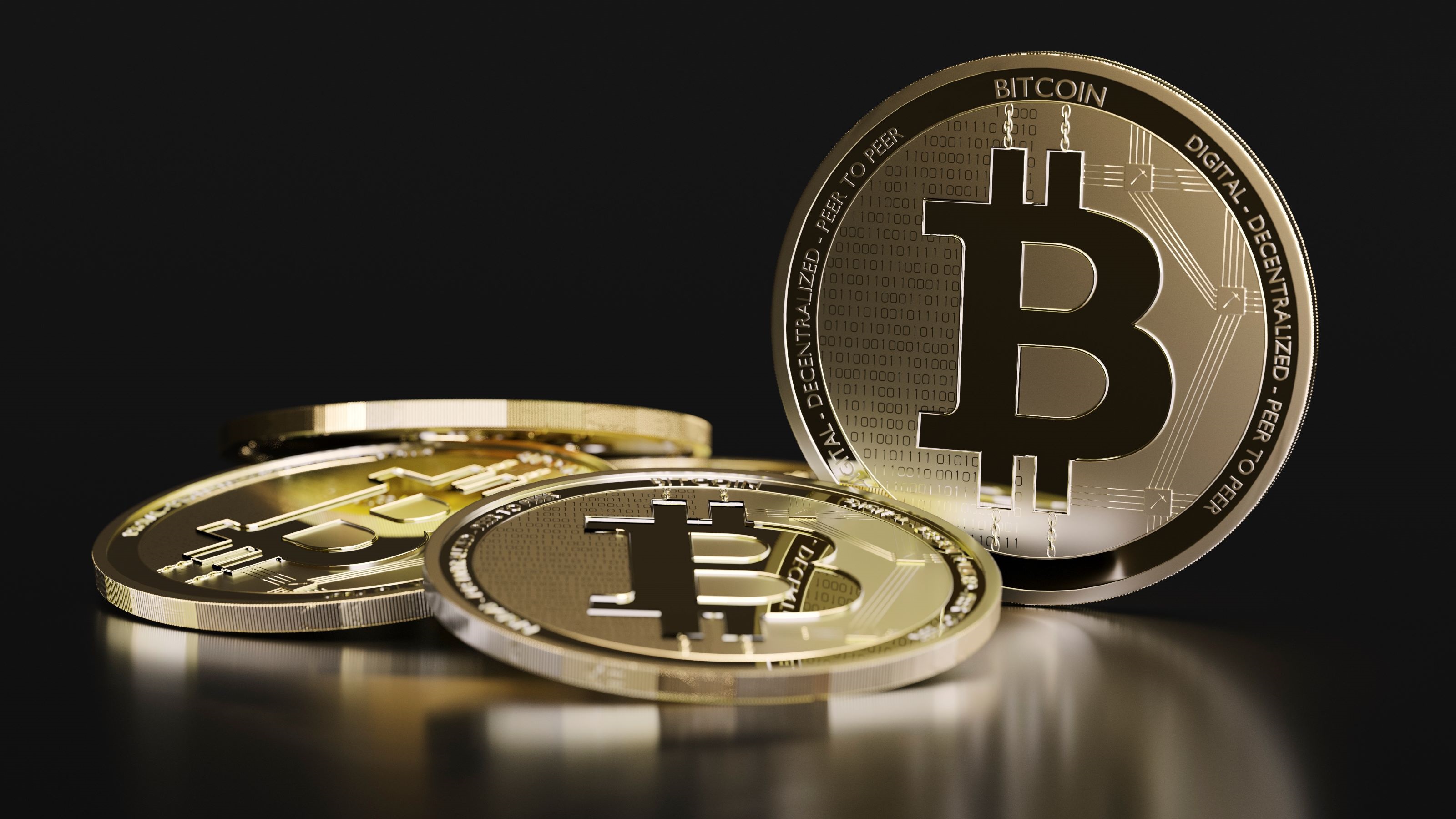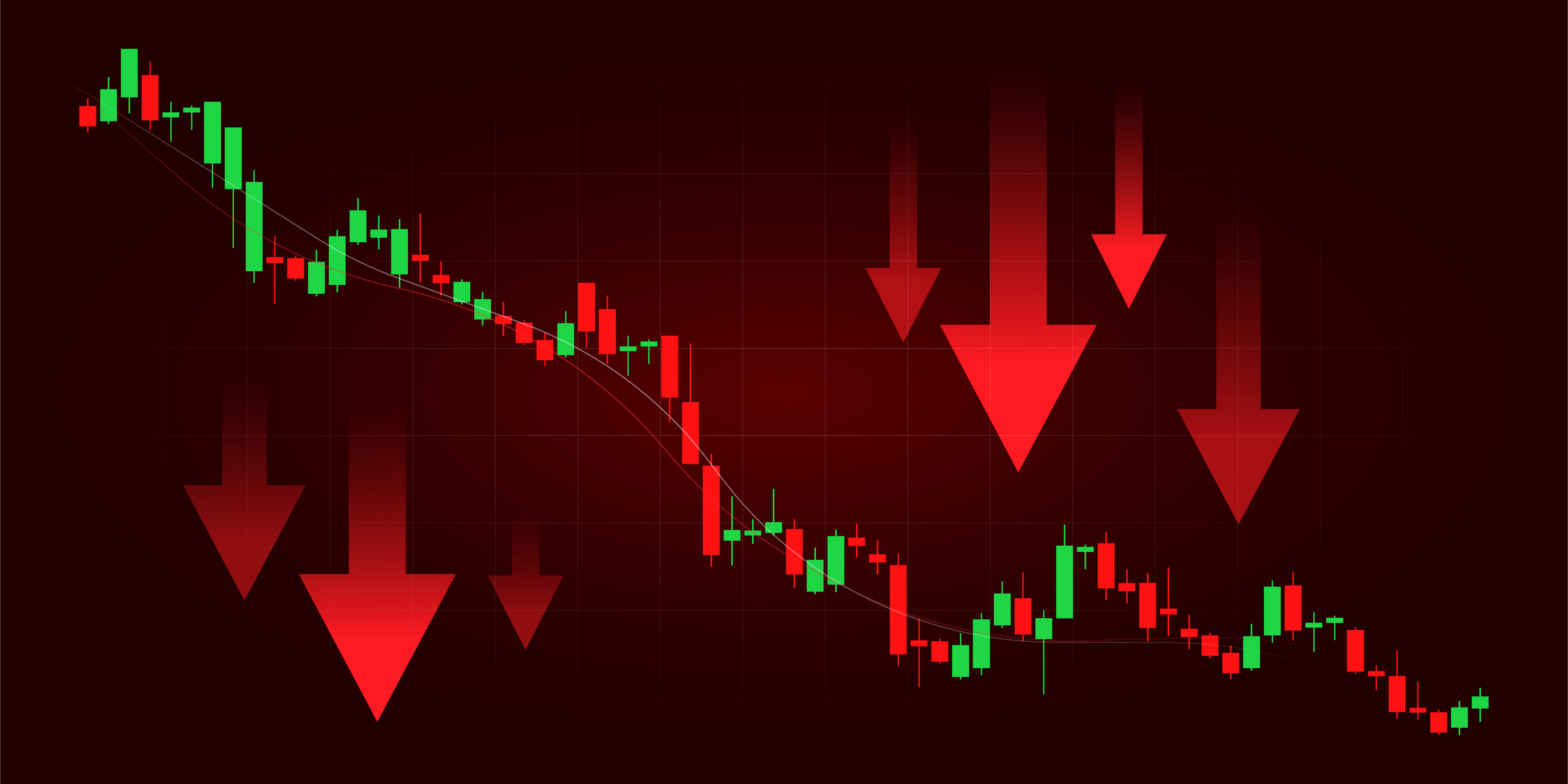SEC Approves Spot Bitcoin ETFs: What That Means for Investors
Spot bitcoin ETFs were granted regulatory approval on January 10, allowing investors easier access to the cryptocurrency.


Profit and prosper with the best of Kiplinger's advice on investing, taxes, retirement, personal finance and much more. Delivered daily. Enter your email in the box and click Sign Me Up.
You are now subscribed
Your newsletter sign-up was successful
Want to add more newsletters?

Delivered daily
Kiplinger Today
Profit and prosper with the best of Kiplinger's advice on investing, taxes, retirement, personal finance and much more delivered daily. Smart money moves start here.

Sent five days a week
Kiplinger A Step Ahead
Get practical help to make better financial decisions in your everyday life, from spending to savings on top deals.

Delivered daily
Kiplinger Closing Bell
Get today's biggest financial and investing headlines delivered to your inbox every day the U.S. stock market is open.

Sent twice a week
Kiplinger Adviser Intel
Financial pros across the country share best practices and fresh tactics to preserve and grow your wealth.

Delivered weekly
Kiplinger Tax Tips
Trim your federal and state tax bills with practical tax-planning and tax-cutting strategies.

Sent twice a week
Kiplinger Retirement Tips
Your twice-a-week guide to planning and enjoying a financially secure and richly rewarding retirement

Sent bimonthly.
Kiplinger Adviser Angle
Insights for advisers, wealth managers and other financial professionals.

Sent twice a week
Kiplinger Investing Weekly
Your twice-a-week roundup of promising stocks, funds, companies and industries you should consider, ones you should avoid, and why.

Sent weekly for six weeks
Kiplinger Invest for Retirement
Your step-by-step six-part series on how to invest for retirement, from devising a successful strategy to exactly which investments to choose.
Bitcoin prices have been soaring amid reports that spot bitcoin ETFs (exchange-traded funds) could soon hit the market.
The price of the largest cryptocurrency by market value climbed as high as $47,900 Tuesday evening after a tweet on the Securities and Exchange Commission's (SEC) suggested the regulatory agency approved a spot bitcoin ETF. However, the SEC immediately issued a follow-up tweet that indicated its X page was hacked and that the tweet was fake. Bitcoin prices quickly turned tail.
Still, Bitcoin has more than doubled over the past 12 months – effectively ending the crypto winter from 2022 – and is now trading at levels not seen in nearly two years. "Bitcoin has stormed higher again … on the back of more ETF chat," says Craig Erlam, senior market analyst at OANDA. "There's clearly a lot of excitement about the prospect of a bitcoin spot ETF, as is evident by such a surge on speculation of something that was already expected to eventually get over the line."
From just $107.88 $24.99 for Kiplinger Personal Finance
Become a smarter, better informed investor. Subscribe from just $107.88 $24.99, plus get up to 4 Special Issues

Sign up for Kiplinger’s Free Newsletters
Profit and prosper with the best of expert advice on investing, taxes, retirement, personal finance and more - straight to your e-mail.
Profit and prosper with the best of expert advice - straight to your e-mail.
Bitcoin was little changed late Wednesday after the SEC actually did approve rule changes that will allow for spot bitcoin ETFs to begin trading in U.S. markets, paving the way for institutional investors and retail traders to more easily access exposure to the cryptocurrency.
This follows a major ruling last summer from a federal appeals court that overturned the SEC's attempt to block Grayscale Investments' application for a spot bitcoin ETF. Judge Neomi Rao said the SEC's decision to approve two bitcoin future ETFs but reject the application for the spot market fund was "arbitrary and capricious." This effectively paved the way for today's decision.
What's the difference between a spot vs futures ETF?
In 2021, cryptocurrency traders scored a win when the SEC approved the ProShares Bitcoin Strategy ETF (BITO) – the first crypto ETF on the market that was not tied to stocks. The fund was so popular it accumulated more than $1 billion in assets under management by its second day.
There are plenty of other Bitcoin and crypto ETFs on the market, but none that are tied to a digital asset's spot price – or where it is trading at right now so that it can be bought for immediate delivery. This differs from futures prices, which are where the cryptocurrency is expected to be trading in the future. Futures traders buy contracts that lock in this price for a delivery of the asset at a later date.
The SEC had previously rejected approving a spot bitcoin ETF, citing risks such as market manipulation and fraud.
Spot bitcoin ETFs will drive demand by investment advisors and wealth and private banking integrated products, as well as provide easier access to ETFs in direct broker accounts, says Gautam Chhugani, senior analyst of Global Digital Assets at Bernstein. The analyst thinks total managed crypto assets will reach $500 billion to $600 billion over the next five years, up from the current $45 billion to $50 billion.
What happens next?
The ruling likely won't have a negative impact on the crypto industry, says Julius de Kempenaer, senior technical analyst at Stockcharts.com. "It opens up access to a broader group of participants which means more turnover, more adaptation and very likely in-flow from investors who so far have not taken the plunge to allocate to crypto for various reasons."
As for any negatives, "the only thing I can come up with is when there would be very strict regulations, restrictions and policies attached to buying and selling the bitcoin ETFs," de Kempenaer adds.
Following today's decision, spot bitcoin ETFs could start trading as soon as tomorrow, January 11. A number of firms including Grayscale, Ark Invest and Fidelity have already submitted paperwork to launch their own funds.
The high demand among asset managers is good news for investors as many issuers are cutting their fees on the bitcoin funds. Invesco, for instance, is waiving the 0.59% fee for its Galaxy Bitcoin ETF (BTCO) for the six months on the first $5 billion in assets.
Should I buy a bitcoin ETF?
"Bitcoin ETFs give investors a sense of security – there's a layer of protection," says Karim Nurani, chief strategy officer at private investing firm Linqto. "Most people still regard cryptocurrency as a wildly volatile and unsafe asset class and they're discouraged by the complexity of self-custody and the ever-present danger of cryptocurrency hacks, scams and exploits. Having trusted financial entities provide spot bitcoin ETF mitigates these risks and responsibilities."
Investors may not want to rush out and scoop up shares of these new ETFs, though. At the moment, cryptocurrencies remain highly speculative and should be approached with extreme caution. For market participants interested in dipping their toes into the crypto space, it is crucial that they do their research and only use money they can afford to lose.
One benefit of buying exchange-traded funds is that they spread risk across a basket of assets. However, when it comes to crypto ETFs, this is likely more true for funds that are made up of stocks vs those that are tied to futures or spot prices of a digital currency.
Related content
Profit and prosper with the best of Kiplinger's advice on investing, taxes, retirement, personal finance and much more. Delivered daily. Enter your email in the box and click Sign Me Up.

With over a decade of experience writing about the stock market, Karee Venema is the senior investing editor at Kiplinger.com. She joined the publication in April 2021 after 10 years of working as an investing writer and columnist at a local investment research firm. In her previous role, Karee focused primarily on options trading, as well as technical, fundamental and sentiment analysis.
-
 Quiz: Do You Know How to Avoid the "Medigap Trap?"
Quiz: Do You Know How to Avoid the "Medigap Trap?"Quiz Test your basic knowledge of the "Medigap Trap" in our quick quiz.
-
 5 Top Tax-Efficient Mutual Funds for Smarter Investing
5 Top Tax-Efficient Mutual Funds for Smarter InvestingMutual funds are many things, but "tax-friendly" usually isn't one of them. These are the exceptions.
-
 AI Sparks Existential Crisis for Software Stocks
AI Sparks Existential Crisis for Software StocksThe Kiplinger Letter Fears that SaaS subscription software could be rendered obsolete by artificial intelligence make investors jittery.
-
 Fed Vibes Lift Stocks, Dow Up 515 Points: Stock Market Today
Fed Vibes Lift Stocks, Dow Up 515 Points: Stock Market TodayIncoming economic data, including the January jobs report, has been delayed again by another federal government shutdown.
-
 Crypto Trends to Watch in 2026
Crypto Trends to Watch in 2026Cryptocurrency is still less than 20 years old, but it remains a fast-moving (and also maturing) market. Here are the crypto trends to watch for in 2026.
-
 Dow Slides 427 Points to Open December: Stock Market Today
Dow Slides 427 Points to Open December: Stock Market TodayThe final month of 2025 begins on a negative note after stocks ended November with a startling rally.
-
 Dow Adds 516 Points on Broad Optimism: Stock Market Today
Dow Adds 516 Points on Broad Optimism: Stock Market TodayEasing trade war tensions and promise from early earnings reports has investors looking on the bright side to start the week.
-
 Banks Are Sounding the Alarm About Stablecoins
Banks Are Sounding the Alarm About StablecoinsThe Kiplinger Letter The banking industry says stablecoins could have a negative impact on lending.
-
 5 Top Tech Disruptors to Watch
5 Top Tech Disruptors to WatchBig change catalyzed by top tech disruptors often leads to big growth.
-
 Dow Dives 542 Points on Soft Jobs Data: Stock Market Today
Dow Dives 542 Points on Soft Jobs Data: Stock Market TodayThe last day of a busy week ends with the first greater-than-1% move in either direction in more than a month.
-
 Stocks Are Up and Down on Fed Day: Stock Market Today
Stocks Are Up and Down on Fed Day: Stock Market TodayIn another sign of changing times, JPMorgan has partnered with Coinbase to enable cryptocurrency purchases with credit cards.